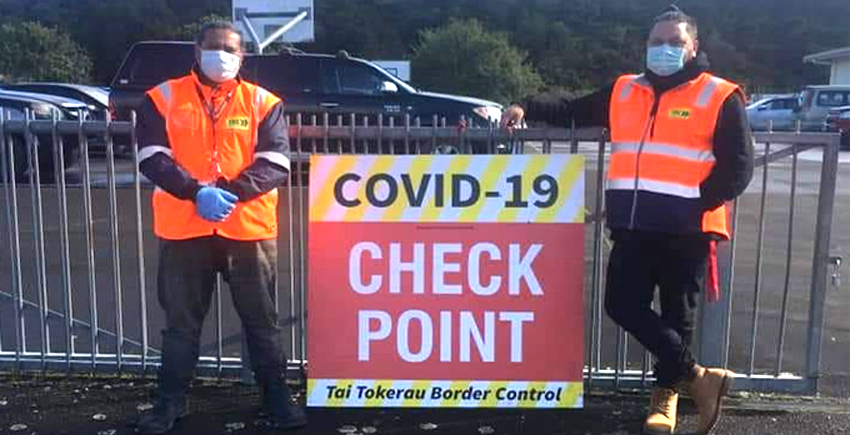October, 2021: On a videocall from ‘across the ditch’ (local slang for Australia), our family members repeat the mantra, ‘it’s just a flu,’ reflecting the problem faced over there by the federal and state authorities to shape public discourse and opinion in favour of a public health response to the pandemic informed by science and designed to save lives. But, here in Aotearoa New Zealand, we were catching up fast, with in-person rallies and groups on social media protesting passionately against the local response. A message of ‘it’s just a flu’ shows how ignorance meshes with knowledge, as suggested by the theory of agnotology, which recognises ‘ignorance’ as a constitutive force in knowledge systems. It is true that both Covid-19 and the flu, or at least some variants of the common cold, are caused by coronaviruses, but this false message has had fatal effects in Australia.
It now seems clear, on both sides of the Tasman, that the highest price in terms of lives lost to and blighted by this disease will be paid by the indigenous populations. This epidemic is an unprecedented test of humanity, of each of us as individuals and our collective social systems. It is a test of our level of civilisation, in moral and philosophical terms, whether we can individually and collectively counter such a systemic threat as a viral illness that can transmit from one person to another in the most casual of contacts, such as passing in a hotel hallway.
A virus is a symbol par excellence of liminality, occupying as it does the taxonomic borderlands of life and non-life. In Aotearoa New Zealand, the outbreak of the Delta variant of Covid-19 that started in August, 2021, once we had successfully eliminated the Alpha or native variant from our shores in 2020, serves as a stringent lesson about the limits of our national capacity to learn. This learning requires all of us to work intelligently and compassionately for the good of us all. The corrosive effects of extended periods of restriction on the mental health and overall wellbeing of the population weigh against the aims of the lockdowns. Thousands upon thousands of Aucklanders, patiently abiding by the lockdown public health protocols, were stung to see images of large protest rallies and orgiastic parties being attended by other Aucklanders, in contemptuous defiance of the protocols on gatherings.
Likewise, Māori were shocked to see non-Māori anti-vaxxers try to appropriate the 2021 annual He Whakaputanga commemoration, showing callous disregard for the best interests of the vulnerable communities of Te Tai Tokerau (Northland). Northland has one of the highest Māori and least-vaccinated populations of the country and is both cut off from the rest of the country by, and endangered by its proximity to, ‘Tāmaki McCovid’ (Tāmaki Makaurau being the modern Māori name for Auckland). Family members from the North reported Aucklanders fleeing Covid arriving at their holiday homes in the North, changing their bank account address to get through the northern checkpoint or choosing to work from their ‘holiday homes.’ The Tai Tokerau Border Control is a Māori community group that was mounted in response to these dangers, working with police to help protect the vulnerable communities of the North by staunching the flow of Aucklanders flouting the pandemic restrictions.
This pandemic highlights how little we as average citizens know about viruses, vaccines, epidemiology and many other specialised fields of knowledge that are currently directing our daily lives in the pandemic. The sudden changes in social conditions and the extra pressure caused by the lockdowns have caused mental illness, family harm, and drug and alcohol abuse to spike. Such experiences increase the attractiveness and plausibility of anti-pandemic groups, as close at hand as one’s digital device. From an agnotological perspective, conspiracy theories and falsehoods about the pandemic ‘going viral’ on social media illustrates the idea that, as knowledge grows and becomes more widely available, so does ignorance; as the saying goes, the more you know, the more you don’t know.
While the internet has made many aspects of knowledge work more readily accessible and therefore democratic, it has also increased the promulgation of false ideas and conspiracy theories. The restrictions demanded by the pandemic, which led to many more people spending more time online and becoming socially isolated, boosted the spread of such ignorance and fostered extremism. Just as the virus occupies a liminal biological space between life and non-life, social media occupies a liminal discursive space between knowledge and ignorance. Facebook can seem relaxing and innocuous, but it has negative, sometimes fatal, effects on the mental health of teenagers and others. Social media spreads misinformation extremely efficiently, demonstrating the principle that untruth tends to win over truth in popular thought and the national imaginary, perhaps because lies can be made to seem simple and plausible, whereas truths such as explanations of socio-scientific phenomena in a pandemic are invariably complex and difficult to understand.
The anti-vaccine movement capitalises on the capacity of social media to spread misinformation about socio-scientific phenomena, but is also fueled by people’s mistrust of science, research and experts. Toni Inglis shared personal testimony,as an expert nurse in the United States, of the increasing difficulty that she had faced in recent years of persuading parents to immunize their infants. Vaccines are one of the greatest success stories of science, yet skepticism about their safety has seen the growth of an international ‘grassroots movement contemptuous of science and government [that] opposes systematic vaccination.’ Misinformation about the purported link of the measles vaccine to autism may explain a recent uptick in annual rates of measles, a disease considered by 2000 to have been eliminated through vaccination.
It is all very well to blame ‘public skepticism’ (as Inglis does) for the ‘persistence of misinformation,’ but to do so overlooks the causes of that skepticism, such as public disenchantment with science with revelations in recent decades about how people have sometimes been harmed and misled by science and scientific experts, whether due to selfishness, vested interest or ignorance, over matters like thalidomide, Apollo 13, Chernobyl or, more recently, tobacco and fossil fuels. While a certain ‘healthy skepticism,’ closely related to critical citizenship, might be healthy, the disaffected rejection of the public health response to the pandemic informed by science could be considered ‘harmful’ public skepticism. Alienation from society certainly fosters such a form of skepticism that leaves people vulnerable to misinformation, especially when it is spread through social media, which is certainly a factor in low rates of COVID-19 vaccination among young Māori and, in turn, in the proportion of Māori among COVID-19 cases. It is even rumoured that right-wing political forces, supported by the US extreme right, are targeting Māori with anti-vaccine propaganda to encourage Māori to harm their health and thereby further their white supremacist agenda.
Such harmful scepticism about science could easily be confused with the criticism of Western science by advocates of the inclusion of mātauranga Māori in the science curriculum that apparently motivated the much-discussed letter written ‘in defence of science’ that appeared in the NZ Listener magazine in July 2021, a few weeks before the start of the Delta outbreak in Auckland. This letter claimed that criticism of science is dangerous and misguided because science ‘provides immense good [and] is helping us battle worldwide crises such as Covid’ (p. 4). It argued that we ‘increasingly depend on science, perhaps for our very survival. The future of our world, and our species, cannot afford mistrust of science’ (p. 4). Nonetheless, we cannot afford blind faith in science of the triumphalist textbook kind, as evinced by the writers’ debunking of the claim – unsurprisingly, not cited – that Indigenous knowledge is science: ‘Indigenous knowledge may indeed help advance scientific knowledge in some ways, but it is not science.’ The fallacious logic of this ‘defence of science’ betrays its anti-Māori bias.
An analogy can be drawn between the anti-vaccine campaigns currently impacting on Māori and the Listener letter. First, both are concerned with anti-scientific attitudes and opinions, and with science as having a political dimension: we can no longer assume that science is empirical, objective, acultural. Second, both involve the relationship between Māori and Pākehā, which is hierarchical and has material and discursive effects. Third, both rely on conspiracy theories, whether that be about the COVID response or Māori knowledge as science. Asserting that more people are dying from the vaccine than from the virus and encouraging people to gather in super-spreader events to protest the public health response are having harmful, even fatal, effects in our national community. To assert that science is in danger from Māori knowledge or its advocates may not be perceived as causing direct physical harm, but it is equally untrue and, arguably, equally unethical in its deliberate provocation of false alarm. The difference is that the Listener letter styles itself as authoritative scholarly opinion, leaning for an imprimatur of respectability on the signatures of seven senior professors from the top science university in the country. It falls to those of us in the academy who care about these things to make a stand for truth and science, when racism masquerades as scholarship.




